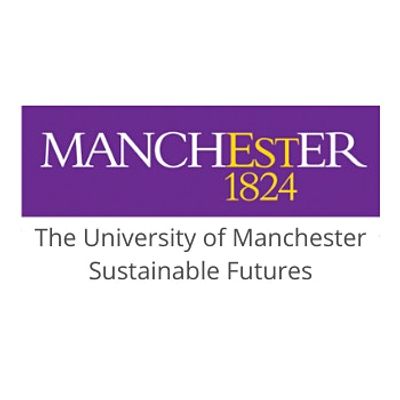
About this Event
This event will be hybrid. Please select whether you'd like to attend in-person or online when signing-up.
Online attendees will receive a Zoom link by email prior to the event.
Location: Uni Place, 3.204
Indicative Agenda
14:00 - 14:05 - Introductions and Welcome.
14:05 - 14:25 - Dr Doğuşhan Kılıç will present on The Emissions Perspective: How Sustainable is Sustainable Aviation Fuel?
14:25 - 14:30 - Q&A
14:30 - 14:50 - Phumza Sokhetye presents on Establishing Methods for Creating Bespoke Jeans Reflecting Extreme Shape Categories in Women's Bodies
14:50 - 14:55 - Q&A
14:55 - 15:00 - Closing thoughts from our seminar Chair.
15:00 - 16:00 - Early Career Researchers networking.
16:00 - Event close.
Talk Description
'The Emissions Perspective: How Sustainable is Sustainable Aviation Fuel?' | - Dr Doğuşhan Kılıç
Aviation emissions significantly impact both climate and air quality. Aircrafts release gases and particles that form contrails, leading to cirrus cloud formation, which contribute to climate change, while these emissions can also affect public health at ground level.
Achieving net-zero emissions in aviation is particularly challenging because replacing traditional Jet-A fuel with sustainable appealing alternatives like hydrogen or electric engines presents technical, economic, and infrastructural hurdles. For this reason, airlines are focusing on Sustainable Aviation Fuels (SAFs), derived from renewable biomass or waste materials. SAFs can be blended with traditional jet fuel and used in current aircraft with minimal modifications.
Over the last four years, we have led/participated in several national and international projects to monitor the emissions from both traditional and sustainable aviation fuels. Our findings show that using SAFs can lead to significant reductions in both particulate and gaseous emissions, depending on the flight mode.
In this talk, I will discuss the potential health impacts of aviation emissions on nearby residential areas and how we study how these emissions evolve chemically. Our research compares Jet-A and SAF to explore how sustainable fuels may reduce environmental impacts.
The talk will end with an overview of our plans for the future as we have recently secured funding to conduct the first in-flight emissions measurement campaign in the UK through monitoring the climate and air quality impacts of SAFs.
Establishing Methods for Creating Bespoke Jeans Reflecting Extreme Shape Categories in Women's Bodies | PhD student Phumza Sokhetye
In an era where digital technology and sustainability are paramount in shaping the future of various industries, the textile and apparel sector stands at the forefront of this transformation. The research focuses on the integration of 3D fashion technology to create bespoke jeans tailored specifically for women with extreme body shapes, such as pear and hourglass figures. The study explores the use of advanced digital tools, including Seamly2D and CLO3D, to revolutionise traditional pattern-making techniques. By generating precise digital patterns, simulating fabric behaviour, and conducting virtual fittings with customisable avatars, the research aims to enhance both the accuracy and efficiency of garment production. This approach not only ensures a better fit but also significantly reduces fabric waste and the need for multiple physical prototypes, marking a substantial step toward more sustainable fashion practices.
The implications of this research extend beyond the immediate benefits of improved fit and customisation. By using online customisation platforms and on-demand manufacturing, my study demonstrates how digital technology can minimise overproduction and excess inventory, addressing one of the fashion industry's most pressing environmental challenges. Additionally, the adoption of advanced sewing and cutting technologies further enhances precision and resource efficiency, reinforcing the commitment to sustainability without compromising on quality. Ultimately, my research highlights the potential of digital innovation to create a more responsible and inclusive textile and apparel industry, aligning with global sustainability goals and paving the way for a future where fashion is both eco-friendly and consumer-centric.
Get to know our speakers
Phumza Sokhetye is a PhD student, studying Textiles and Apparel in the department of Materials.
Dr Doğuşhan Kılıç is a Research Associate at the University of Manchester, specializing in environmental sustainability and environmental hazard monitoring.
His recent research has centred around the emissions of Sustainable Aviation Fuels (SAF) in commercial aviation. His team is conducting a comprehensive environmental impact assessment and emissions monitoring of SAF. This includes engine emission tests in engine test cells, near runways, and close to airports.
Connect with Sustainable Futures
Register here to receive regular updates on upcoming Sustainable Futures events and activities. You can also connect with Sustainable Futures via our Twitter and LinkedIn.
Event Venue & Nearby Stays
University Place, 176 Oxford Road, Manchester, United Kingdom
GBP 0.00










